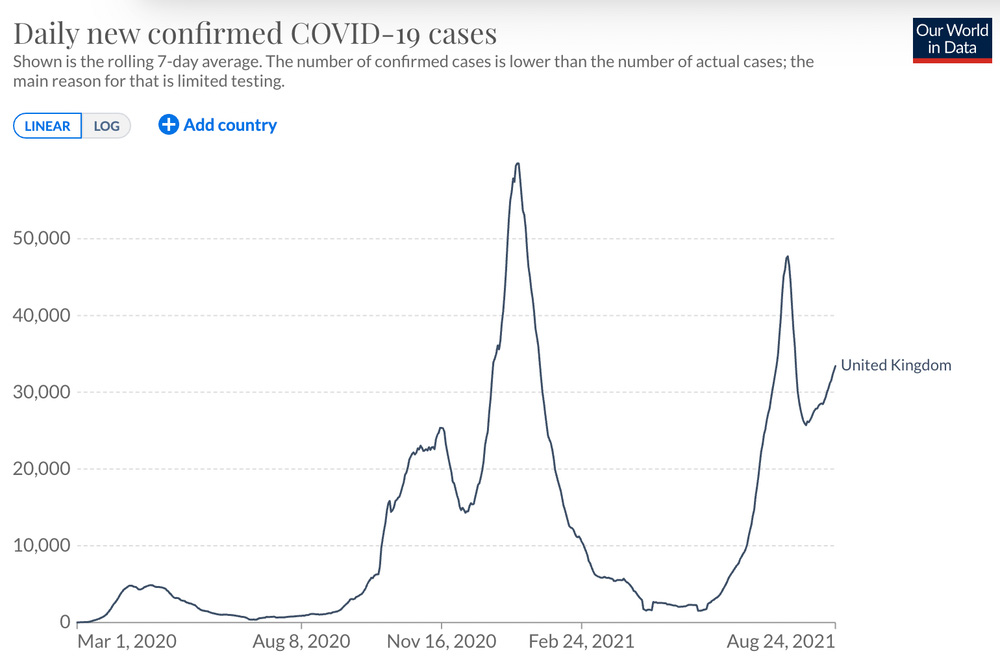Causes and Contributing Factors of COVID Surges

COVID-19 surges, periods of rapid increases in cases, are a recurring challenge in the ongoing pandemic. Understanding the factors that contribute to these surges is crucial for effective public health response.
Seasonal Changes, Covid surge
Seasonal changes can significantly influence COVID-19 transmission. During the colder months, people tend to spend more time indoors, increasing the likelihood of close contact and virus spread. Lower humidity levels during winter can also contribute to virus survival.
Vaccine Hesitancy
While vaccines offer significant protection against severe illness, hospitalization, and death from COVID-19, vaccine hesitancy remains a concern. A lack of confidence in vaccines, misinformation, or concerns about potential side effects can lead to lower vaccination rates, leaving individuals more susceptible to infection.
New Variants
The emergence of new COVID-19 variants, such as Alpha, Delta, and Omicron, has been a major driver of surges. These variants can be more transmissible, evade immune responses, or cause more severe illness, leading to increased case numbers and strain on healthcare systems.
Social Gatherings
Large gatherings, such as concerts, sporting events, and parties, can facilitate virus transmission. Close contact in these settings, often with reduced mask-wearing and ventilation, increases the risk of spreading COVID-19.
Travel
Travel, both domestic and international, can contribute to COVID-19 surges. People traveling from areas with high case numbers can introduce the virus to new locations, leading to outbreaks.
Public Health Policies
Public health policies, such as mask mandates, social distancing guidelines, and lockdowns, play a crucial role in controlling COVID-19 transmission. Relaxation of these policies can lead to increased social interaction and a subsequent surge in cases.
Impact of Different Variants
Different COVID-19 variants have varying impacts on transmission rates, severity, and vaccine effectiveness.
Transmission Rates
Some variants, such as Delta and Omicron, are more transmissible than the original strain. This means they can spread more easily from person to person, leading to faster and more widespread outbreaks.
Severity
The severity of illness caused by different variants can vary. Some variants, like Omicron, may be associated with milder symptoms, while others, such as Delta, may cause more severe disease.
Vaccine Effectiveness
Vaccines are generally effective against severe illness and death from COVID-19, but their effectiveness can be reduced against some variants. For example, the Omicron variant has been shown to partially evade vaccine-induced immunity.
The recent COVID surge has made many of us re-evaluate our social interactions, including dining out. If you’re looking for a safe and delicious way to enjoy a meal, consider ordering takeout or delivery from one of the many Indian restaurants near you.
With their flavorful curries and aromatic spices, Indian cuisine can transport you to a different world, even while staying safe at home. Whether you’re craving a comforting butter chicken or a fiery vindaloo, there’s an Indian restaurant near you that’s sure to satisfy your taste buds while keeping you safe during this time.
The COVID-19 surge impacted many industries, including sports. The Tokyo Olympics, for example, saw a shift in how events were held and viewed. This shift was reflected in Google search trends, with a spike in searches for “sport climbing combined olympics google” sport climbing combined olympics google , suggesting a growing interest in the new Olympic sport.
The pandemic’s influence on the Olympics and its impact on global interest in sports continue to be studied by researchers and analysts.